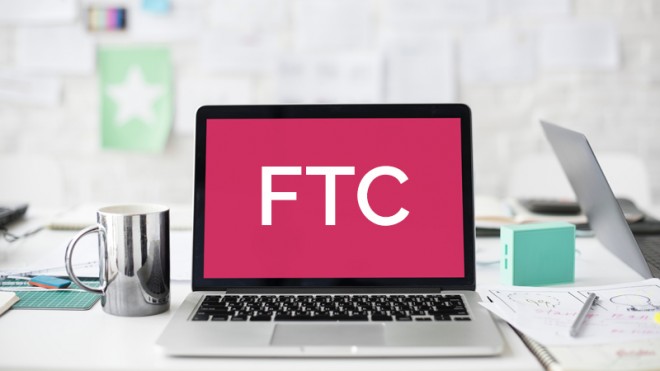
Influencer marketing is all about authenticity. As an influencer, your content should be original, your opinions should reflect your true feelings, and you need to be upfront about your brand endorsements. Following these guidelines are not only perquisites for joining a premier influencer marketing network, but they’re also critical to follow in order to abide by the law. Recently, the U.S. Federal Trade Commission (FTC) has been cracking down on Instagram celebrities for being deceptive about their branded content. So, to help ensure you don’t get slapped with a subpoena and keep receiving awesome brand endorsement, pour yourself a cup of coffee and learn about the FTC’s Endorsement Guides.
Don’t Gamble With Deception
While the FTC has been keeping an eye on how content creators disclose information about brand endorsements to their followers since 2015, they actually filed their first-ever complaint against two social media influencers just last year (2017). The case was made against two famous gamer influencers—individually named Trevor “TmarTn” Martin and Thomas “Syndicate” Cassell—who deceptively endorsed the online gaming/gambling service, CSGO Lotto. Both influencers failed to disclose the fact that they jointly owned the very company they were endorsing. In conjunction with their lack of individual disclosure, Martin and Cassell also paid tens of thousands of dollars to other well-known gaming influencers without requiring them to disclose their sponsorship and actually prohibiting them from providing honest feedback. We wholeheartedly understand that brands don’t want negative reviews, which is why it’s important that influencer agencies provide an outlet for that feedback and never pressure influencers to post dishonestly. For instance, ApexDrop only aligns brands with influencers who truly love their products or services, and the ones who aren’t fans don’t have to post. However, the influencers who don’t enjoy the product or service receive a customer feedback survey that is sent directly to the brand. This allows companies to privately learn about their strengths and weaknesses rather than having influencers posting negative reviews publicly. However, for the influencers who do post about the product or service, the FTC now requires them to “clearly and conspicuously” disclose any material connections with an endorser or between an endorser and any promoted product. Here is what FTC Acting Chairman Maureen Ohlhausen said of Martin and Cassell’s case:
Consumers need to know when social media influencers are being paid or have any other material connection to the brands endorsed in their posts. This action, the FTC’s first [case] against individual influencers, should send a message that such connections must be clearly disclosed so consumers can make informed purchasing decisions.
Instagram Influencer Warning Letters
The FTC has been sending letters to social media influencers and brands since April 2017 to inform sponsored content creators that, if they are endorsing a brand and have a “material connection” to the marketer, that must be “clearly and conspicuously disclosed,” unless the connection is already clear from the context of the endorsement. These “educational” warning letters, which you can view by clicking here, cited specific social media posts of concern and provided feedback on why the particular influencer’s content did not comply with the FTC’s endorsement guides. To simplify these new rules, the commission composed a simple Do’s and Don’ts of Influencers Marketing list which includes recommendations and precautions.
| FTC Recommendations | FTC Precautions |
|
|
FAQs about the FTC
The FTC recently updates their FAQ’s to including new information on hashtags, tags, and disclosures. Although these rules may appear to be one more bureaucratic jumble of red tape, the idea behind their endorsement guides is noble. Plus, the FTC’s requirements shouldn’t affect high-quality influencer marketing much at all—at least from the premier agencies—as influencers should always be honestly anyway. So this is our synopsis of the FTC’s Endorsement Guides: Honesty is Always the Best Policy. Regardless of the platform, your opinions should be truthful. If you have a connection with the brand, let that be known. If you produce honest, high-quality content, your followers will not only appreciate your transparency, but they’ll also still seriously consider your endorsement. Whether you’re receiving money or a few gifts, just be honest about your relationship with the brand, and you’ll likely be okay. It could be as simple as, “Susie’s Awesome Sweater Company gave me a this adorable turtleneck to try, it’s so comfy!” or “Dave’s Razor Blades just gifted me this great shaving cream. Dude, my face is silky smooth!”
Influencers and Brands
At the end of the day, the FTC’s guidelines shouldn’t scare you. In fact, they should inspire you to create even better content. Remember, just be your authentic awesome self and you’ll be okay! If you’re an influencer who is looking to work with a premier influencer network and think you have what it takes to represent big brands, we’d love to have you! Click here to fill out an application. If you’re a brand that is looking for the highest-quality micro-influencers in the industry, then click here to schedule a demo with our team. You’ll be blown away by what our influencer marketers produce while maintaining the level of authenticity and honesty that brands need to foster trust between you and your target market.ApexDrop has helped thousands of authentic micro-influencers connect with quality brands through contextual product gifting (also known as trade collaborations). Imagine having an affordable and easy way to get your products featured by hundreds of influencers immediately on Instagram, but without all the extra work. ApexDrop offers an unparalleled service in campaign management from start to finish and can assure that clients receive quality posts and authenticity. For more information, schedule a call with an ApexDrop Influencer Specialist today www.apexdrop.com/contact.
